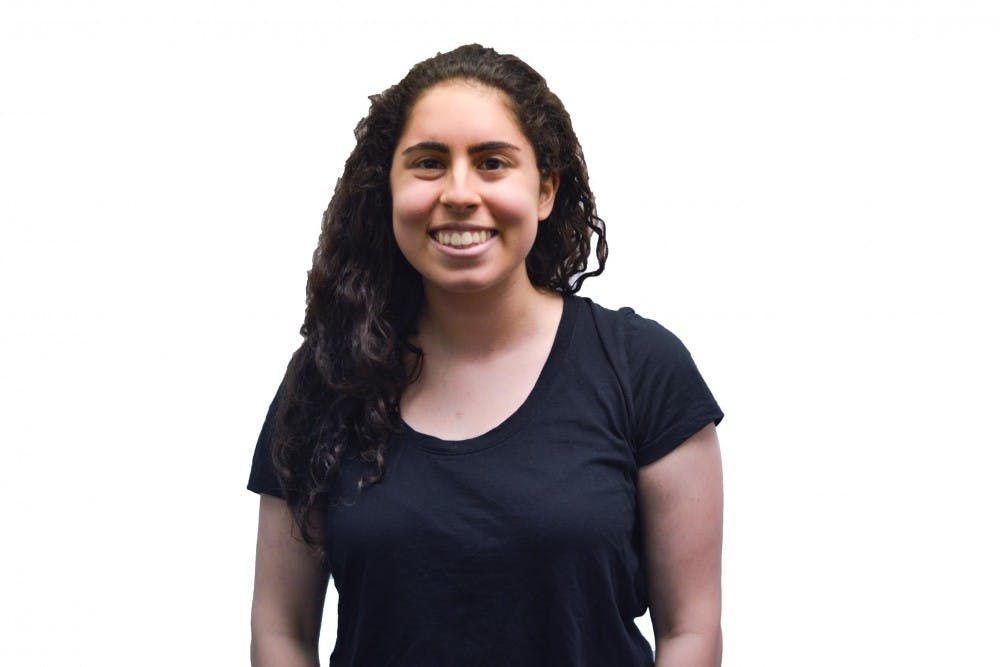
Like almost any other Sunday night at Penn, the line at Sweetgreen is out the door.
Half of the people who walk across Walnut Street become frustrated by its length. They can’t believe they walked all this way for salad and now have to wait in such a long line. So they leave, exasperated, upset, and in complete disbelief that they can’t get their salad fix tonight. Their night is somewhat ruined.
Across the world, it’s the middle of the night and US troops as young as eighteen are walking through Syria with artillery slung across their shoulders. They walk across razed land, through air impossibly dusty. As they continue to walk, fear courses through them. They could be attacked without warning. Death is imminent. They wonder whether they should constantly be on high alert or just allow fear to numb their jagged nerves.
Over 530,000 of the soldiers who fight for our country in the Middle East are between the ages of 18 and 24. That’s over 530,000 people sleeping wherever they can, eating MREs, and hoping to stay alive, all while we have the privilege to sit in air-conditioned classrooms and learn, eat meals prepared for us in a cafeteria or at a restaurant, and sleep in a proper bed at night.
Penn students can start becoming more socially aware by taking a few minutes out of their day to read headlines. Many of us are already on our phones looking at Facebook, Instagram, and Twitter. While many social media outlets provide you with the latest news, much of what you see is chosen specifically for you by an algorithm that predicts your interests. Instead, you can use your Facebook or Twitter to search for a greater number of news outlets or generally important headlines. That way, you can become more aware of what's going on elsewhere without having to leave Facebook or Twitter.
Another way to broaden your horizons is to actually see how people beyond 40th Street live their lives. There are so many opportunities for community involvement in West Philadelphia, and many of them take up just a few hours of a Saturday and let you pursue your interests — anything from athletics to robotics — with kids in the West Philly area. Just one trip past 40th will make you realize that Philly is more than just Penn and Center City.
Approximately 6,100 miles from Philadelphia, there are far fewer opportunities for young Middle Eastern women to get an adequate education. To prevent young women from engaging with sociopolitical issues that affect them, many Middle Eastern governments limit their educational opportunities. Until recently, women in Saudi Arabia were not allowed to drive. Countries like Iran have been watching Saudi Arabia and, as a competitive measure, have also been easing their restrictions against women, claiming that it’s "too time consuming" to arrest them. While these might be moves in the right direction, these governments have a long way to go until they can say that they’re actually helping the women in their respective societies.
The fears, struggles, and experiences of people our age on the other side of the world make ours seem inconsequential. That's not to say that we've never struggle and that we all come from privileged backgrounds. It’s more to say that there are people our age who are immersed in a college setting and don’t always — or ever — think about the different experiences of their contemporaries.
While travel abroad may broaden college students’ horizons, it doesn’t give us a genuine look into the hardships that people our age experience every day. More often than not, you’re accompanied by people from your university and are going to hot, touristy destinations. Even if you explore nearby places, you don’t really have the chance to immerse yourself in the lifestyles and habits of other people your age to a great extent.
While there’s hardship all around the world, I became interested in the Middle East for two reasons. My interest was sparked by reading about wartime experiences in news outlets. I’ve recently read some books on the topic — Phil Klay’s "Redeployment" and Lawrence Wright’s "The Looming Tower: Al-Qaeda and the Road to 9/11" both stood out to me.
The second reason is that that the Middle East has been the chessboard for world powers to exert their influence for over half a century. People our age suffer from it the most. When she was 16 years old, my mom was forced to flee Iran during the Iranian Revolution. Meanwhile the West looked on in passive dismay as it realized that unfettered access to oil would come with some complications.
We can make the choice to remain politically unaware. At the end of the day, that only serves to emphasize our privilege. People think they can afford to be incognizant of worldly matters if those matters don’t pertain to them directly, but to do that is the ultimate act of selfishness.
While Penn definitely broadens our horizons in the classroom, our overall experience can be stifling. We are encouraged to think that success is measured by the job or graduate school you get into or your post-graduation salary. In fact, we are surrounded by people who believe that.
It shouldn’t be that way. If we continue to be oblivious to the way that people our own age in other parts of the world are forced to live, we’re not succeeding. We won't become better people if we just fuss about our own problems and fail to gain any perspective. College should challenge your beliefs, not make you more comfortable with the way your life already is.

ALEX SILBERZWEIG is College sophomore from New York, studying mathematics and economics. Her email address is alexsil@sas.upenn.edu
The Daily Pennsylvanian is an independent, student-run newspaper. Please consider making a donation to support the coverage that shapes the University. Your generosity ensures a future of strong journalism at Penn.
Donate






